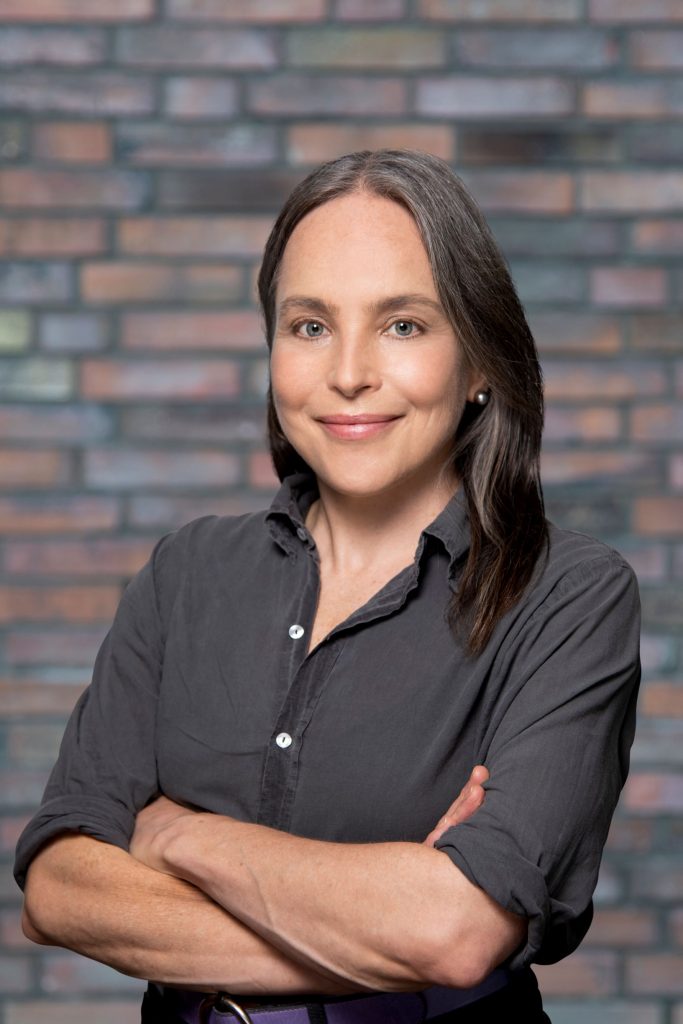Siobhan Roberts named “Journalist in Residence” at HITS
The Heidelberg Institute for Theoretical Studies (HITS) gives science journalists the opportunity to deepen their knowledge of computer-based, data-driven science with a longer stay at the institute. Candidates from six continents applied. A committee of science journalists and scientists from universities and HITS selected Siobhan Roberts (Toronto, Canada) for 2020. The award-winning science journalist and author intends to use her stay to increase her fluency with data-driven research and machine learning methods.
Canadian science journalist and author Siobhan Roberts is the current “Journalist in Residence” at the Heidelberg Institute for Theoretical Studies (HITS). The program gives science journalists the opportunity to deepen their knowledge of computer-based, data-driven science with a longer stay at the institute. Candidates from six continents applied. A committee of science journalists and scientists from universities and HITS selected Siobhan Robertsto be the “HITS Journalist in Residence 2020.”
Siobhan Roberts has worked as a freelance journalist with a focus on mathematics and science since 2001. She writes regularly for The New York Times “Science Times,” and has contributed to The New Yorker’s science and tech blog “Elements,” The Walrus, Quanta and The Guardian, among other publications. Moreover, she is the author of two biographies on mathematicians: “King of Infinite Space” on Donald Coxeter, and “Genius at Play” on John Horton Conway. She earned multiple awards for her work, among them the Euler Book Prize from Mathematical Association of America.
“Increasing my fluency in data-driven research – bugs and biases and all”
Siobhan Roberts arrived at the institute in mid-September. In spite of the Corona crisis, she has already met with HITS researchers from different groups on several occasions, be it online or “in real life.” She attended the “virtual Heidelberg Laureate Forum”, an online issue of the annual meeting of the awardees of Computer Science and Mathematics with young researchers in their respective fields. During her stay she intends to learn about the fields of computational carbon chemistry, astroinformatics and computational evolutionary biology, which are all investigated at HITS. “I’ll optimize my visit to increase my fluency with data-driven research – bugs and biases and all – and to explore opportunities for data journalism,” she says. She will also work on her current book project, a biography of the Swiss-American-Canadian mathematical logician and group theorist Verena Huber-Dyson.
During her time at the institute, Roberts will give an internal seminar with HITS researchers, as well as a public talk on, “The Annals of Scientific Storytelling.” Finally, she will visit the numerous university and extramural research institutes in Heidelberg and at the KIT in Karlsruhe.
A program for experienced science journalists
Since 2012, the “Journalist in Residence” program offers experienced journalists with a focus on science journalism the opportunity to spend a three-month to six-month paid stay at HITS. In this time, journalists can interact with the research groups, implement their own projects and participate in internal colloquia and seminars of HITS researchers.
To date, eight journalists from India, the U.S., Spain and Germany participated in the HITS fellowship — which started in 2012 with the award-winning German science journalist Volker Stollorz. In the meantime, Stollorz became chief editor of the German Science Media Center in Cologne, an organization run by journalists that helps journalists with their reporting.
Press Contact:
Dr. Peter Saueressig
Head of Communications
Heidelberg Institute for Theoretical Studies (HITS)
Phone: +49-6221-533-245
peter.saueressig@h-its.org
About HITS
HITS, the Heidelberg Institute for Theoretical Studies, was established in 2010 by physicist and SAP co-founder Klaus Tschira (1940-2015) and the Klaus Tschira Foundation as a private, non-profit research institute. HITS conducts basic research in the natural, mathematical, and computer sciences. Major research directions include complex simulations across scales, making sense of data, and enabling science via computational research. Application areas range from molecular biology to astrophysics. An essential characteristic of the Institute is interdisciplinarity, implemented in numerous cross-group and cross-disciplinary projects. The base funding of HITS is provided by the Klaus Tschira Foundation.
